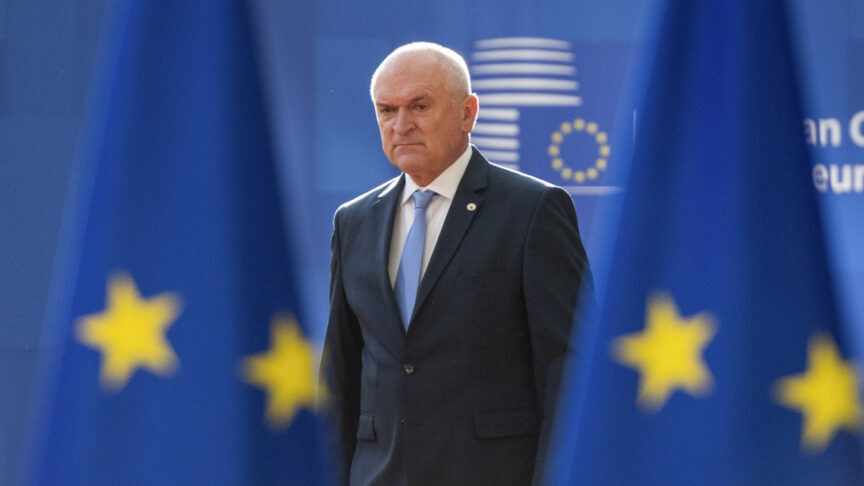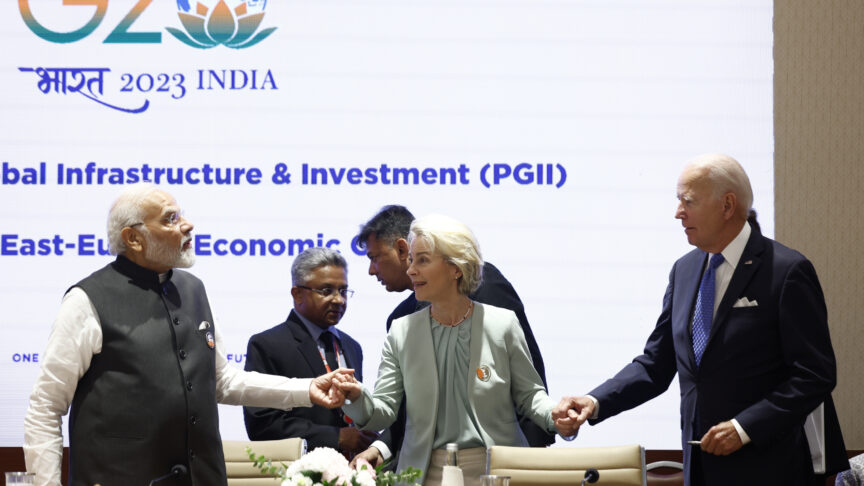The EU must reinvigorate its Eastern policy
Europe is up for another long, hot holiday season of crises on its eastern border
This piece was first published by Progress on 19 June 2009.
Back in September 2008, the EU reacted to the war in Georgia by deciding to
fast-track its proposed ‘Eastern Partnership’ for the six east European states
left stranded between Russia and the EU as extended in 2004 and 2007 (Belarus,
Ukraine and Moldova, Georgia, Armenia and Azerbaijan). By EU standards, the
launch process was fast indeed, with a formal grand summit held in Prague this May to get
the Partnership off the ground.
Except the launch was anything but grand. Only Angela Merkel of Europe’s big hitters bothered to attend. There was no
Brown, no Sarkozy, Zapatero or Berlusconi. Italy sent its minister of welfare.
And since the summit, Europe’s would-be
partners have lurched from one crisis to another. After the violence that
followed elections in April, Moldova’s
deadlocked parliament has twice failed to elect a new president, so new
elections will have to be held on 29 July – but with further deadlock the
likely result as the ruling Communist party loses key members. Amazingly for
those Europeans who shivered in January after Russia’s
gas supply through Ukraine
was cut off, the two countries seem to be heading for yet another gas crisis
over the summer. Russia’s
Gazprom is desperate for cash, and Ukraine has contracted for too much
gas at too high a price and struggles to meet every monthly payment. It secured
April’s gas supply as an advance against transit fees; in May it had to buy
back its own government bonds. No one knows how it will pay in the coming
months, when it normally fills up its gas storage to last through the winter.
Tension between Russia and Georgia rumbles
on. Russia has even picked a
fight with its traditional friend Belarus over, of all things, the
export of milk.
The Eastern Partnership is a welcome initiative, but it is not designed to deal
with these sorts of crises. The EU needs to wise up to the fact that its new
neighbours are not the relatively stable states it got used to dealing with in
the 1990s, when its old neighbours were the likes of Poland or the Czech
Republic. They are also states in which Russia is much more of a player.
There is a competition for influence, not between spheres of influence, but
between the very different models of politics and economics that the EU and Russia have to
offer.
The Eastern Partnership urgently needs to be buttressed with policies that
address the short-term problems of the region. Countries like Moldova and Ukraine
have been hit hard by the economic crisis, but unlike EU states such as Latvia or Hungary,
they can only borrow from the IMF (or from Russia). The EU needs to be a more
flexible facilitator of extra funds from individual member states or from the
EBRD and EIB.
The EU should pay more attention to the region. It should set up a
‘listening tour’ of the region under the Swedish presidency which may sound
unlikely but is exactly what the Swedes did last time they held the presidency
in 2001.
The EU needs to make itself more attractive in the region. One way of doing
this would be to invest in new media, as under-developed local markets mean
that locals often rely on Russian sources. The EU could also consider offering
financial assistance to cover small areas like Moldova
and parts of Georgia with
wireless internet access, as the United States Agency for International
Development did for Macedonia
in 2004-05.
Visa-free travel is the most difficult issue, given worries within the EU about
immigration and crime, but the most important for the EU’s pulling power in the
east. EU and Eastern Partnership Interior Ministries should begin work on
confidence-building measures under the Swedish presidency. Meanwhile, the EU
should work to improve and humanise visa application conditions.
The alternative, if the EU remains relatively passive, is a ring of instability
in what is, to repeat the obvious, Europe’s
neighbourhood. Like the US
and Mexico,
growing gaps in living standards, in good governance and the rule of law will
inevitably flow across borders. ‘Fortress Europe’
is not an option. Stability and security in the EU depend on stability and
security in the neighbourhood.
Andrew Wilson is a Senior Policy
Fellow at the European Council on
Foreign Relations
The European Council on Foreign Relations does not take collective positions. ECFR publications only represent the views of their individual authors.


